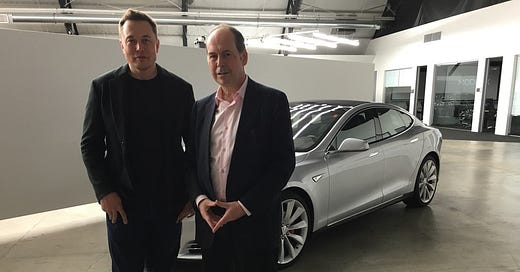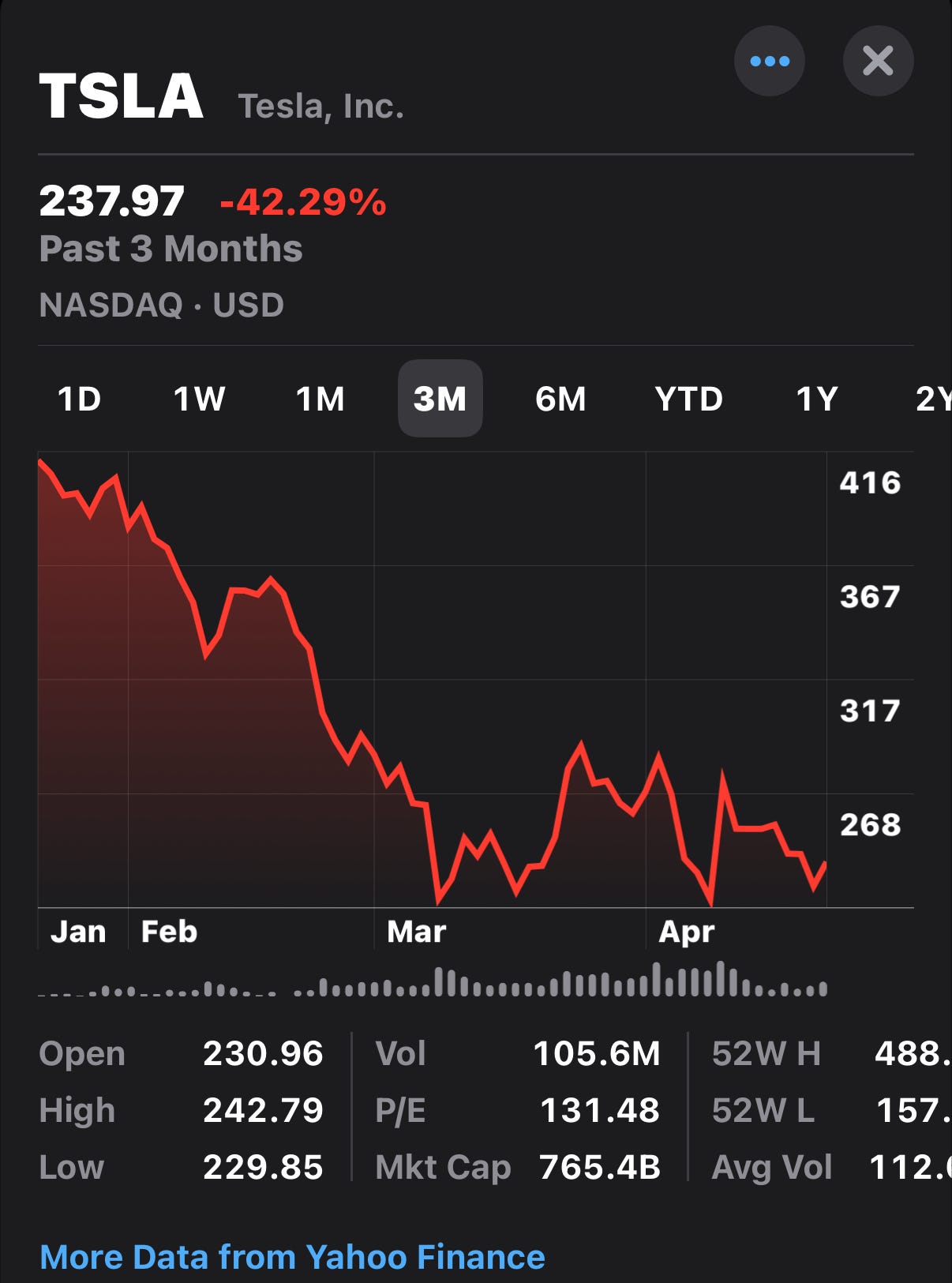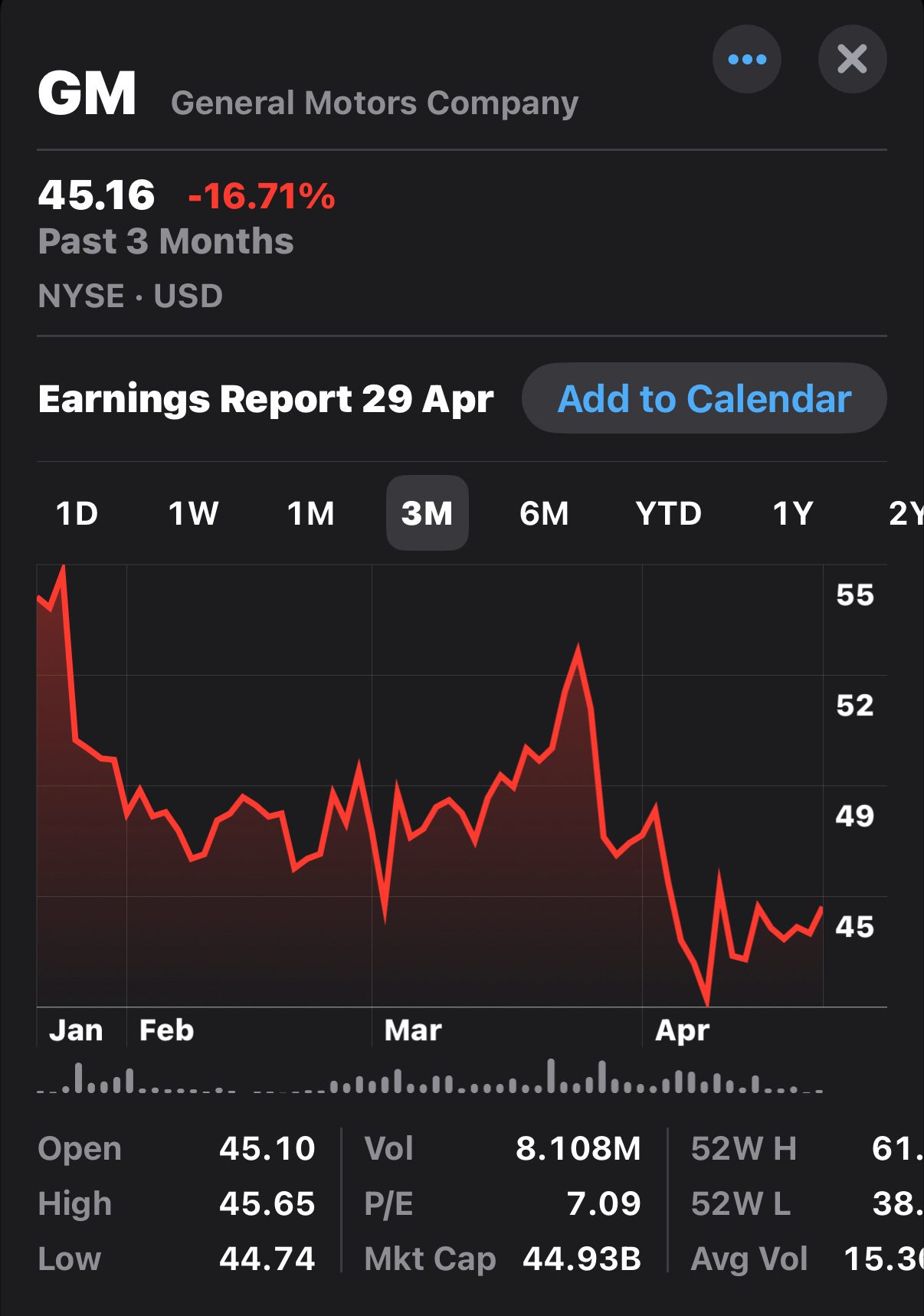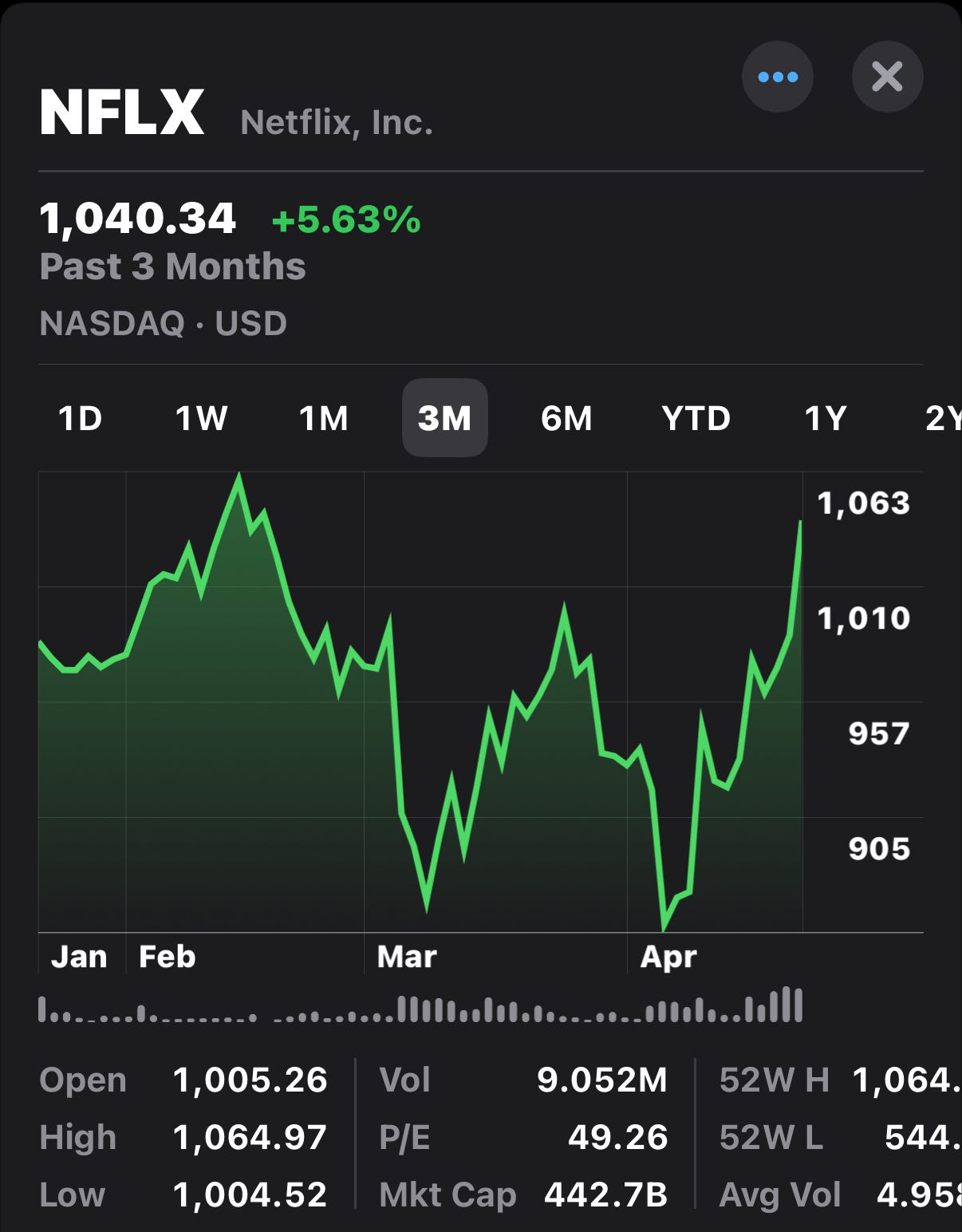After Wall Street closed last night, Tesla unveiled a truly dreadful set of first quarter results. Revenue from car production was down 20% while earnings per share - one way of measuring profits - had fallen 71%. Both measures fell short of analysts’ already gloomy expectations.
So, a car company which is supposed to be in its massive growth phase is going into reverse and its future is further imperilled by Donald Trump’s trade war with China, where many of Tesla’s parts are made. Its share price should be tanking, right?
Instead, we learn that shares rose 5% in after hours trading, partly because Elon Musk pledged to spend less time on his work at DOGE dismantling the US government, more of it dismantling Tesla - sorry, focusing on guiding the car company into the autonomous driving future.
It only served to illustrate once again the fact that Tesla’s share price has lost all contact with reality. It is what has become known as a meme stock, governed by the cult of Musk whose adherents, rather like Bitcoin “hodlers”, see every dip in the price as a buying opportunity.
Maybe a few years ago, when Tesla appeared to be leading the electric car revolution and have unrivalled expertise in autonomous driving and robotics, you could have justified a price which made it worth all of the “dinosaur” car companies combined - at least that was the case put to me by an old friend who works in tech investment.
Even then I was sceptical, having seen at first hand how questionable Musk’s predictions about the future capabilities of his company can be. Back in 2016 he told me that Teslas would “soon” be capable of driving themselves with no human on board coast to coast across the United States, stopping along the way to recharge. It is a claim that he has repeated, along with the advent of other “FSD” (Full Self Driving) capabilities, many times since, so much so that it has become a bit of a joke amongst Tesla watchers.
In recent months Musk’s extremely distant relationship with the truth has become more visible to many in his work at DOGE where claims of saving trillions by axing corrupt public servants have fallen apart under even the mildest interrogation.
There has been a cost to trashing Tesla’s reputation - surprise, surprise, electric car buyers tend liberal in their politics - with the company’s shares down 41% so far in 2025. But even after that fall, Tesla still looks insanely overvalued.
The price/earnings ratio (P/E) is a useful measure of how investors are feeling about a company. A low number says they feel its best days are past and they are not confident that profits can grow. A high number says that even if earnings are relatively small right now, your investors believe that you are on the path to greatness and sticking with the shares will reap them great rewards in a few years.
Today General Motors, the grand old man of the American car industry, has a P/E ratio of 7 - investors have little confidence that GM will be a leader in the electric autonomous future. Whereas despite all of those missed targets, erratic decision making and a global trade war, Tesla’s P/E is over 131.
To put that in context let’s compare Tesla not with a sleepy old car company but with another tech giant which had results out this week. The streaming platform Netflix, once a small ‘DVD through the post’ operation, had its best ever quarter with revenues of $10.5 billion beating expectations, as did the earnings numbers. The share price, which had already proved more buoyant than other tech stocks during this turbulent period, rose again. But this company which has mostly eschewed the kind of corporate drama which surrounds Tesla and Musk, has a P/E ratio of 49 and is valued at $442 billion compared to the car company’s market capitalisation of $765 billion.
So, as I have been telling myself for years, the only sensible investment advice is to go out and short Tesla shares in the expectation that they will fall towards a sane valuation. But thank goodness I do not have the funds to do that because many of those that did spot Tesla’s irrational valuation and act on it have lost a fortune
It is always worth remembering in these circumstances the advice of the economist John Maynard Keynes:
"Markets can remain irrational longer than you can remain solvent."







I always enjoy your writing and this piece explained a lot to me. Thank you Rory.
Very good Rory! Top form!